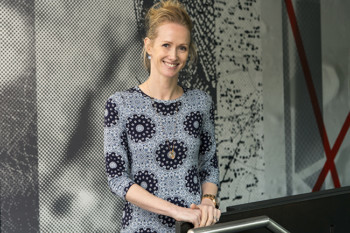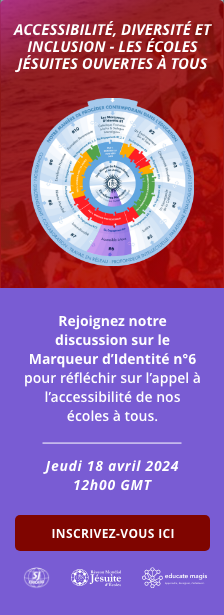In the state of Victoria in Australia our Graduates sit their final exams in October. The exam period begins with over 40,000 students across the state and globe sitting the same three-hour paper, responding analytically and creatively. The English exam is not only the beginning of the annual Examination schedule but it also marks the end of our Year 12’s academic involvement with the College and the start of their lives post-secondary school.
 At the end of last year and the day before the English exam I was walking to my office, which is off the Great Hall. The Hall had been set up for the morning exam, with 250 seats and chairs lined up in imposing row after row. Digital clocks were displayed on the monitors, time ticking down to commencement at 9 o’clock the following morning. I momentarily thought back to my own Year 12 exams over twenty-five years ago and to be honest, could barely recall them. I was sure at the time they were incredibly important but the passing of time has fuzzed out the edges of those particular memories. While I was lost in my own attempt at recalling my experience the sight of two boys at the far end of the Great Hall caught my eye.
At the end of last year and the day before the English exam I was walking to my office, which is off the Great Hall. The Hall had been set up for the morning exam, with 250 seats and chairs lined up in imposing row after row. Digital clocks were displayed on the monitors, time ticking down to commencement at 9 o’clock the following morning. I momentarily thought back to my own Year 12 exams over twenty-five years ago and to be honest, could barely recall them. I was sure at the time they were incredibly important but the passing of time has fuzzed out the edges of those particular memories. While I was lost in my own attempt at recalling my experience the sight of two boys at the far end of the Great Hall caught my eye.
They were sitting in the seats talking. I walked over to them, getting ready to gently chastise them for being in the Hall when they shouldn’t have been when I realised they were Year 12s and my approach softened. I realised they were sitting in the seats that had been assigned to them for the exam. They were so anxious they had gone to the Great Hall, the spiritual heart of our school, for the last time as a student. They did this to eradicate their nervousness and fears, to be comfortable in the uncomfortable. As I chatted to them and assured them of how well they would go in their exam I realised that in their world, this moment was life changing.
To them, this exam and the ones that would follow it, could determine the course they could get into, the path they may take and impact on the careers they aspire to. Interestingly, a recent report from the Harvard Graduate School of Education called ‘Making Caring Common’ explores a program established by Harvard to reduce the emphasis on grades and instead make the focus on inspiring genuine and authentic concern for others. The report, entitled Turning the Tide: Inspiring Concern for Others and the Common Good Through College Admissions, lays out a blueprint for addressing three of the most intractable challenges facing American college applicants today: excessive academic performance pressure, the emphasis on personal achievement over good citizenship, and the uneven opportunities available to students of varying income levels and backgrounds.
Whilst the American process of college admissions is distictly different to our own ATAR based system and VTAC application, there are very stong parallells between the systems in terms of reversing the emphasis on academic achievement over humane and authentic citizenship. The report suggests that today’s culture sends young people messages that emphasize personal success rather than concern for others and the common good (Konrath, O’Brien, & Hsing, 2011; Putnam, 2005; Putnam, 2014; Weissbourd & Jones, 2014). Over 80 colleges contributed to the report and suggest that too often the college admissions process—a process that involves admissions offices, guidance counselors, parents and many other stakeholders—contributes to this problem. “Yes, we want students who have achieved in and out of the classroom, but we are also looking for things that are harder to quantify, [like] authentic intellectual engagement and a concern for others and the common good,” explains Jeremiah Quinlan, dean of undergraduate admissions at Yale University, one of the report’s endorsers. In response to the report, Yale will be adding an essay question on next year’s application that asks applicants “to reflect on engagement with and contribution to their family, community and/or the public good.”
I find this quite fascinating, particuarly when we are in the midst of ‘exam season’ and the school is buzzing with Year 12s seeking out teachers for final words of encouragement and direction in equal measure. I hope they realise that while their application to their studies is very important and we want them to achieve to their full potential, collectively as a College, would be more impressed with them if they left Xavier with the exact attributes that the Ivy League colleges in the States are now advocating for – service to others, engagement with their community and a dedication to authentic life long learning.
Within the Ignatian tradition, the Profile of the ‘Graduate at Graduation’ is significant and infused with the characteristics of a holistic Jesuit education. To graduate from an Ignatian school means more than the end of scheduled classes and timetables. To graduate from a Jesuit education is to leave school with the foundation of a life to be lived in service and generosity of spirit. Whilst excellence can be conventionally measured through our students’ recognition and success, the experience of a Jesuit education does not end with graduation.
 The characteristics of the Profile may tend to describe the graduate from various perspectives. Jesuit education, however, is, has been, and always will be focused on whole person education: mind, spirit, and body. Jesuit education accomplishes this through cura personalis (personalised care and concern for the individual) and through a holistic curriculum. Jesuit education aims to form life-long learners imbued with an Ignatian approach to living shaped by the knowledge, understanding, and use of the interplay of experience, reflection, and action (the dynamic at the heart of the Spiritual Exercises). Jesuit education also aims to graduate students who possess the desire and the personal resources to be men and women for and with others. Thus, the Profile always needs to be viewed within the context of the mission of Jesuit education and not merely as a list of achievable outcomes for the Jesuit high school graduate.
The characteristics of the Profile may tend to describe the graduate from various perspectives. Jesuit education, however, is, has been, and always will be focused on whole person education: mind, spirit, and body. Jesuit education accomplishes this through cura personalis (personalised care and concern for the individual) and through a holistic curriculum. Jesuit education aims to form life-long learners imbued with an Ignatian approach to living shaped by the knowledge, understanding, and use of the interplay of experience, reflection, and action (the dynamic at the heart of the Spiritual Exercises). Jesuit education also aims to graduate students who possess the desire and the personal resources to be men and women for and with others. Thus, the Profile always needs to be viewed within the context of the mission of Jesuit education and not merely as a list of achievable outcomes for the Jesuit high school graduate.
The profile of a Xavier College graduate is one of men are who are open to growth, intellectually competent, religious, loving and committed to doing justice. As a college community are committed to demonstrating excellence by means of academic rigor, extensive co-curricular involvement and an authentic commitment to spiritual formation. We are committed to excellence in all its forms. We aim to inspire and enable graduates to action, to embody the values they have been guided by in their time here, to leave us prepared for a life of service for humanity, for the greater glory of God.
A Jesuit education therefore authenticantly prepares students to aquire these qualities and seeks to elevate these attributes above the normally prized intellectual achievements. As a College we know our students have been educated from the inside out, that they have grown into men who will be for and with others.
In this blog series entitled “Conversations in Context: Teaching and Learning in a Jesuit School” or in short “Teaching and Learning in Context” we present articles written by Melinda Roberts. These originally appeared in Xavier College’s fortnightly newsletter, written for the school community and published on the school website. We are happy to share these with the wider Jesuit education community. To read the previous blog click here.

Melinda Roberts is the Head of Teaching & Learning at Xavier College in Melbourne, an all-boys Jesuit high school in Australia. In the last twelve months, she has led a number of significant changes at a physical, philosophical and ultimately cultural level, with the aim of ensuring Xavier remains committed to its mission of excellence in education and the formation of reflective, compassionate and articulate men and women of Christian faith, hope and love who will provide outstanding service and leadership in our world, while still producing excellent academic results. Her articles in this blog series provide an insight into this challenge, one which is invariably shared by Jesuit schools across the globe.
Se connecter ou Adhérer
pour créer et afficher des commentaires

